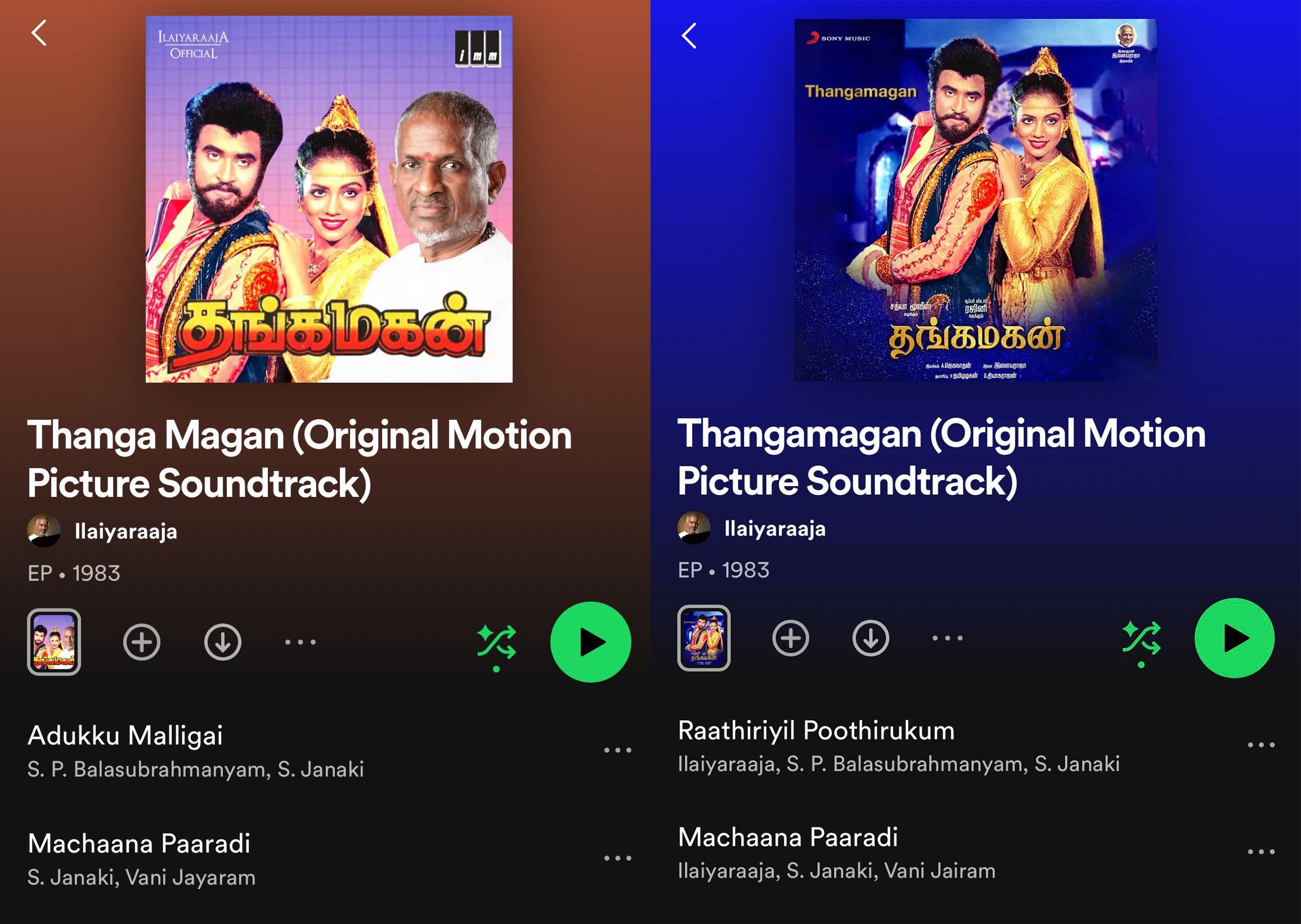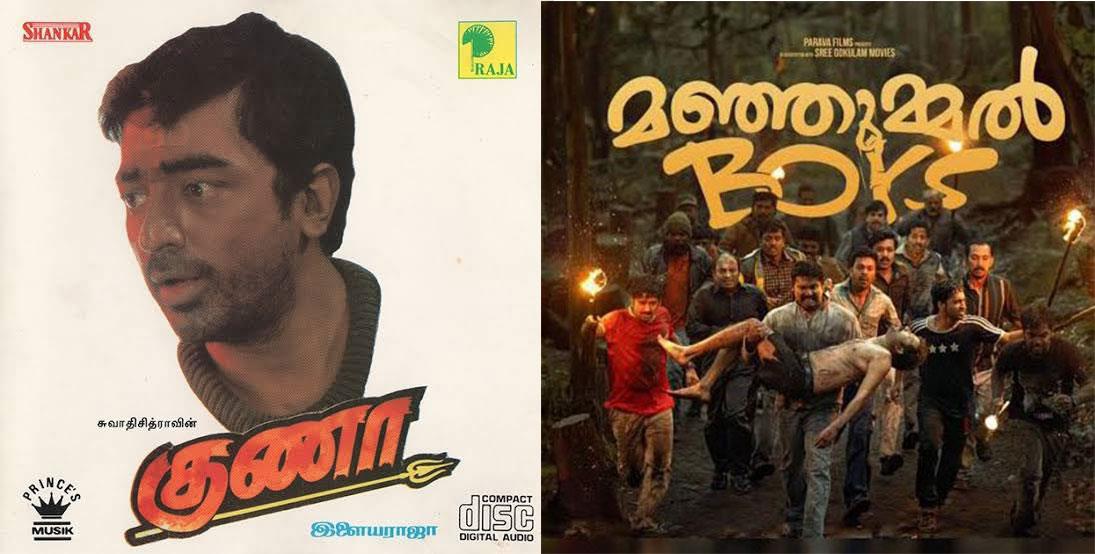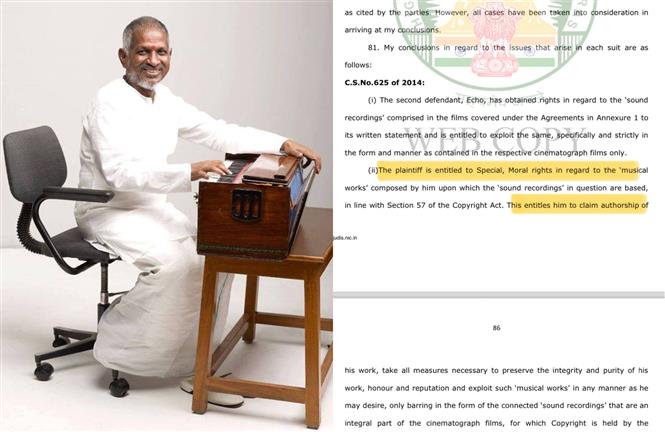Tamil veteran music composer Ilaiyaraaja, who is the recipient of the second highest civilian award called the Padma Vibhushan in India, has been making headlines for claiming stringent copyright for years now. Quite recently, he sent legal notices to the makers of the Tamil film Coolie (produced by Sun Pictures) and Malayalam superhit Manjummel Boys (produced by film’s star Soubin Shahir, his father Babu Shahir and Babu Antony of Parava Films), over usage of Ilaiyaraaja songs without the composer’s consent.
This isn’t the first time Ilaiyaraaja sent a legal notice to someone within the film fraternity. Back in 2017, the veteran had served legal notices to his close friend and late singer, the legendary SP Balasubrahmanyam, and singer Chitra, blocking them from singing Ilaiyaraaja compositions in their concerts. But Ilaiyaraaja’s tryst with copyright backdates even further, and here is a gist of it all:
Copyright & Royalty Sharing in Film/Music Business
When music is produced for film in India, the master ownership belongs to the film producer, who retains the right to sell it outright or for a recurring revenue (sold only for a certain time period) to a music label. The label, after exploiting the music on streaming platforms (in digital era) or through physical copies, then shares the revenue with all royalty shareholders, including the artists like composers, singers and lyricists.
According to norms, master owners i.e. film producers/ music labels get 50% of the royalty revenue and the remaining 50% is divided among singers and authors i.e. music composers and lyricists. However composers and lyricists’ claim to royalty only came about with the 2012 Amendment of the Indian Copyright Act, 1957. Till then, the practice was lyricists and music composers were irrevocably and unconditionally assigning their copyrights to the film producer for a one-time payment i.e. the remuneration they were taking for working on the movie.
This meant that music composers like Ilaiyaraaja had no further right to any royalty, even if their own work was being utilized in other mediums. The 2012 amendment rectified this and stated in sections 17 (b) and (c) that moral rights cannot be waived even though contractually it may have been agreed otherwise. That said, a layman has no insight into how or whether the artists are paid their due.
In Tamil music business atleast, the artists of popular song Enjoy Enjaami like singer Dhee, rapper, lyricist Arivu, and the song’s composer Santhosh Narayanan have openly complained about not receiving their share of royalties from the Independent music label Majja.
The Starting Point – Ilaiyaraaja Vs Music Labels
Ilaiyaraaja had assigned the copyrights of some of his songs to his now late wife Mrs. Jeeva Raaja, and in 2007 Jeeva Raja had entered in Sound Recording License Agreement (SRLA) with a Malaysia based label called AGI Music, under which they could exploit Raaja’s music and pay Ilaiyaraaja the royalties. Jeeva Raja passed away in 2011, and AGI Music continued exploiting Ilaiyaaraja’s music on the basis that no tenure of contract was agreed upon.
In 2013, AGI Music files a case against Ilaiyaraaja for ‘breaching’ the terms of the SRLA. This case was dismissed in 2019 stating that when a tenure is not mentioned in an SRLA, then the default is 5 years which means the agreement for exploitation of music between AGI Music and Jeeva Raaja ended in 2012. The court did not order any costs in this case, meaning neither Ilaiyaraaja nor AGI Music had to pay the other party any damages.
In 2014, Ilaiyaraaja filed a civil suit against a group of music labels including AGI Music and Echo Recording Company, which owns the masters to most of Ilaiyaraaja’s songs to date. The appeal was to stop these music labels from exploiting his compositions, without his permission.
First Public Outrage
Sticking to his copyright claim and fight over royalties, Ilaiyaraaja infamously in 2017, served his close friend and legendary singer, the now late SP Balasubrahmanyam with a legal notice, stopping him from performing Ilaiyaraaja songs in SPB concerts. Singer Chitra was another big name who was sent a legal notice preventing her from performing Ilaiyaraaja compositions in concerts.
At this time, Ilaiyaraaja had pretty much stated that he is against the commercialization of his songs i.e. being performed at concerts, or being played on instruments in broadcasted shows by big TV channels, without his consent. In 2017, Ilaiyaraaja also hit a popular Karoke app called Smule with a legal notice, citing the same commercialization-without-permission reason.
These incidents made everyone in, and following the Tamil film business, look into whether or not Ilaiyaraaja could do this, if it was only the music composer who held the rights to a song, and why it was only Ilaiyaraaja who was stopping even his singers from performing his compositions.
The answer: Just as a composer has authorship to a song, which prevents anyone else from using their instrumentals, a lyricist too has original literary rights protected under Section 13(1)(a), which prevents anyone else from using their words. Meaning, not just composers like Ilaiyaraaja, even a lyricist of a song too could serve legal notices to performers, and stop them from singing their songs. However this would only result in a legal deadlock, as Section 38 of the Indian Copyright Act gives singers not just performing rights, but also moral rights.
Turnover For Ilaiyaraaja – Special Moral Rights
In 2015 when the AGI music case was still going on, AGI Vs Ilaiyaraaja and Ilaiyaraaja Vs Echo case was clubbed, and the judge who gave out the AGI judgement in 2019, declared that in the case of Echo, the labels had master ownership. This lets Echo exploit a song in its original form, like licensing the use of a old Ilaiyaraaja song in a modern day movie.

The same judge also declared in 2019 that Ilaiyaraaja had ‘special moral rights’ to 4500 of Ilaiyaraaja’s songs, that he had composed for 1000 movies. This allowed Ilaiyaraaja to release all of the songs Echo had master ownership to, under his own label IMM on streaming platforms and such. It also gave Ilaiyaraaja the authorship to his songs, meaning he could stop anyone from modifying his composition like remixing, sampling, etc. without his consent.
In March 2024, Echo Recording appealed over the ‘Special Moral Rights’ given to Ilaiyaraaja with the Madras High Court, the verdict of which is still awaited.
Recent Legal Claims – Coolie & Manjummel Boys Explained
Ilaiyaraaja’s biggest legal notice yet came in 2024, when the veteran Tamil music composer objected to the sampling/remix of Vaa Vaa Pakkam Vaa song in the Rajinikanth starrer Coolie, by composer Anirudh Ravichander. Though Ilaiyaraaja’s notice was served to Coolie‘s producers Sun Pictures, the composer particularly took issue with Coolie director Lokesh Kanagaraj, who he believed had violated copyright consent for the third time after Vikram (2022), another Lokesh Kanagaraj directorial, and Fight Club (2023), a film Lokesh Kanagaraj presented.
Va Vaa Pakkam Va song is from the Rajinikanth starrer Thanga Magan (1983). Echo which owns the masters to Thanga Magan, holds the licensing rights to this song, but Ilaiyaraaja with his authorship accorded by ‘Special Moral Rights’ could stop anyone from modifying the song, as was done in the Coolie Disco number.
Same’s the case with the Ilaiyaraaja composed Vikram Vikram song (1986), which was used in parts by Anirudh Ravichander in the Vikram (2022) title track., and En Jodi Manja Kuruvi song (1986), parts of which were used by Govind Vasantha in Thaalam song from Fight Club.
The master owners i.e. music labels like Echo, now owned by Sony, Pyramid, etc have been licensing the Ilaiyaraaja songs to producers of movies like Coolie (Sun Pictures), Vikram (Kamal Haasan’s Raaj Kamal Films International), Fight Club (Reel Good Films), and Manjummel Boys (2024). The Manjummel Boys movie however did not remix or modify, but used Ilaiyaraaja’s Kanmani Anbodu Kaadhalan song in its original form from Gunaa (1991).

Moreover the producers of Manjummel Boys not only acquired the rights of the Kanmani Anbodu Kaadhalan song from Pyramid, the master owners of the Tamil version but from two other music labels who held the Telugu masters and other language masters respectively. Only the Manjummel Boys team stand clear of any copyright infringement, as legally they needed no consent from the song’s author Ilaiyaraaja but only the master owners who licensed it to them.
Ilaiyaraaja’s contention is however from a moral standpoint given his ongoing battle with Echo over the challenged ‘Special Moral Rights’, and the exploitation of his music without consent. Plus team Manjummel Boys had visited Chennai and were on a meeting spree with Kollywood celebrities, but did not accord the courtesy respect to Ilaiyaraaja, whose song plays a pivotal role in the marketing of Manjummel Boys, even post its OTT release on Disney Plus Hotstar.
Opposition and Support
Many musicians, and members of the film fraternity recognize, and understand the importance of Ilaiyaraaja’s fight over copyright infringement, and would rather take his side than of big corporate entities. However, the general air about the topic is either ambiguous, or that of animosity towards the 80 year old, given some of the maestro’s asks are from a moral standpoint of respecting the creator of the music.
Frequently Asked Questions
The concern is about big corporations exploiting the musical works of Isai Gnani, not about people enjoying music. In the last more than 40 years his music has always been played in public gatherings and functions, and will continue to be so.
— Saravanan Annadurai (@saravofcl) May 25, 2024
FAQ 3#Ilaiyaraaja is no longer a member of The Indian Performing Right Society Limited (IPRS), which not just oversees the licensing of songs, but also ensures that the royalty reaches respective share holders. Why did he leave? Does he still get his share?
The IPRS for the… pic.twitter.com/vczS9hyPcG
— MovieCrow (@MovieCrow) May 24, 2024
Have any thoughts, corrections or information to share on this topic? Feel free to share it with editor@moviecrow.com









